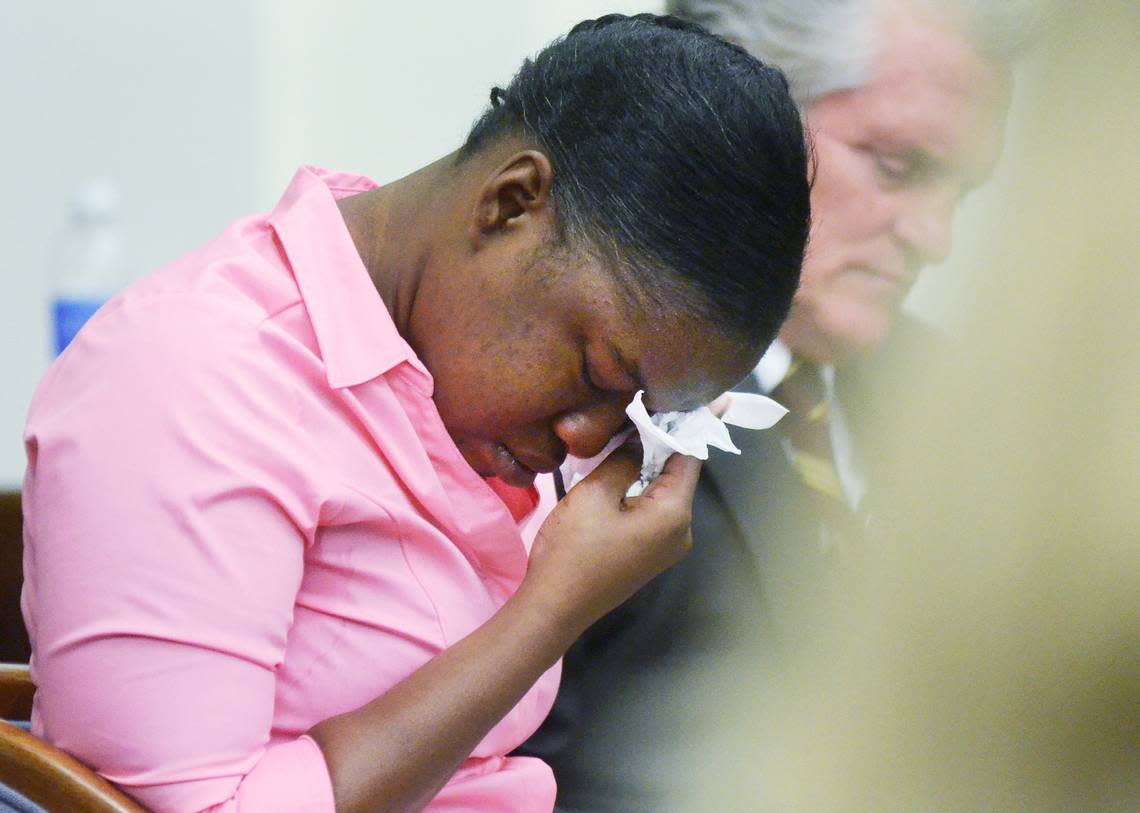Using insanity defense, Beaufort mom who threw toddler off balcony found not guilty
Nearly a decade after her previous guilty conviction in 2014, Beaufort mother Shayla Jerea Bryan has been found not guilty by reason of insanity for brutally beating, stabbing and throwing her then 3-year-old daughter off a third-floor balcony.
Monday’s verdict means any further decisions made for Bryan “must be therapeutic in nature, not punitive,” according to the SC Code of Laws. An examination will follow at the SC Department of Mental Health as to whether Bryan needs to be involuntarily hospitalized. If not, a judge can rule to free Bryan — but the state has the right to impose certain therapeutic release requirements, including mandatory medication and regular psychiatric evaluations.
Bryan was previously found guilty of attempted murder in May 2014, receiving the maximum 30-year sentence after a three-day bench trial at the Beaufort County Courthouse. After years of appeals, she was granted a retrial this April through the post-conviction relief (PCR) process, with the state conceding that Bryan’s new mental evaluations warranted a reconsideration of the original verdict.
Legal experts say these types of appeals are common, but the issuance of a retrial through PCR is very rare.
Dr. Pamela Crawford, Bryan’s longtime psychiatrist, testified in a March hearing that Bryan suffers from schizoaffective disorder, which likely prevented her from distinguishing between right and wrong during the December 2011 attack on her toddler. Because Bryan’s psychiatric episodes persisted during her time in prison — where she didn’t have access to illegal drugs — Crawford claimed that the attack could reasonably be explained as a psychotic break, and not as a result of substance use, according to court documents.
The new ruling was handed down by Circuit Court Judge Robert J. Bonds.
‘The devil came across me’
Bryan’s 3-year-old daughter Dionna Hagood was laughing in the bathtub on the night of Dec. 19, 2011 when the mother began hitting and stabbing the child. She confessed to the attack halfway through an eight-hour interrogation with Beaufort police following her arrest.
“The devil came across me,” she told investigators. “I didn’t want my child to be in this world.”
Bryan then threw her daughter from a third-floor balcony at Beaufort’s Cross Creek Apartment Homes, located off S.C. 170. After running down the stairs to retrieve her, Bryan knocked on a neighbor’s door while holding the unconscious child, who was in a “state of shock” with multiple skull fractures, subdural bleeding and bruised brain tissue.
The child survived the attack, requiring a red blood cell transfusion and a crowd-funded rehabilitation program to regain bodily function. Her grandmother, Lavonia Bryan, took custody of the toddler following her release from the hospital.

What happens next?
As is standard for defendants found not guilty by reason of insanity, Bryan’s treatment has been put in the hands of the Department of Mental Health. Medical officials must perform a psychiatric evaluation and determine whether she needs to be hospitalized within 120 days of her commitment to the state hospital, according to South Carolina law.
Those findings are reported to a judge, who holds a hearing to determine whether to free the defendant or include release conditions. If hospitalization is deemed necessary, Bryan could legally be institutionalized for the extent of her 30-year sentence.
This process differs from the state’s classification of “guilty but mentally ill,” which can lead to prison time with a psychiatric component built in.
